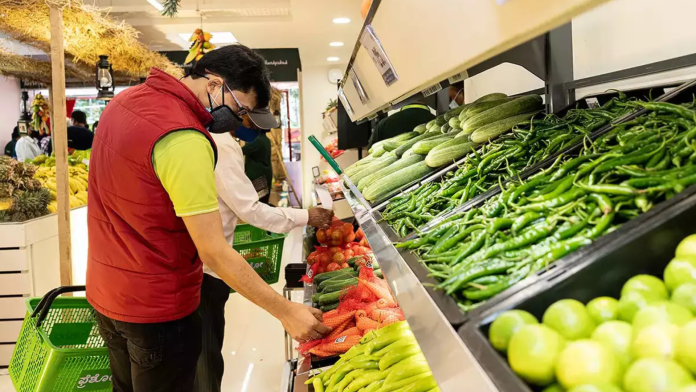The skyrocketing costs of tomatoes, ginger, chillies, and cumin are exerting significant financial strain on household grocery expenses.
According to traders, the cost of tomatoes at Delhi’s Azadpur mandi, the largest wholesale market in Asia, surged from INR 100 per kg on Friday to INR 130 per kg on Monday. This sharp increase is anticipated to raise retail prices to around INR 170-180 per kg during the current week. Traders further cautioned that prices might even surpass the INR 200 mark.
The retail price of ginger, a fundamental ingredient in Indian cuisine, has surged to INR 320 per kg, marking a significant increase from INR 200 per kg just a month ago. This rise in price is attributed to diminished supplies from Karnataka, where unseasonal rains have adversely affected the ginger crop. Additionally, the ongoing unrest in Manipur has further contributed to the reduced availability of ginger from that region.
The price of cumin, a vital spice in Indian households, is currently hovering at around INR 55,750 per quintal at Gujarat’s Unjha Mandi. This significant surge in cumin prices can be attributed to robust domestic and export demand, combined with a constrained supply situation resulting from reduced yields in Gujarat and Rajasthan, the two major producer states. Additionally, a three-year low carryover stock of 50,000-60,000 tonnes has further intensified the supply pressure.
“Unseasonal rains in March have affected the production of jeera adversely,” said Arvind Patel, Vice President of the Unjha mandi.
On tomatoes, Ashok Kaushik, president of the Tomato Traders Association at Azadpur, said the surge in prices was quite steep this time.
“The same phenomenon had happened in 2017. Unseasonal rains in Haryana, Uttar Pradesh and Rajasthan have damaged the crop,” he said.
The northern states are now depending on supplies from Himachal Pradesh, he said, adding, “Supply from Maharashtra is also less as the crop there has been affected due to erratic weather conditions.”
In eastern states, tomato production has been impacted due to a heatwave. Tomato at the retail level is now selling at INR 150–160 per kg. Kasuhik doesn’t expect prices to soften immediately. “However, demand is reducing as consumers are not buying because of high prices. If this trend continues, then there might be a small decline in prices.” India produces around 20-21 million tonnes of tomatoes annually.
According to Dhruv Bhosin, proprietor of the Delhi Ginger Trading Company, ginger prices have been consistently rising at the wholesale level for the past two months. The situation has been aggravated by the impact of rainfall in Karnataka.
“Earlier, 25-30 trucks of ginger were coming to Azadpur mandi weekly. But now that has dwindled to 5-6 trucks. Also, farmers have cultivated a smaller crop this year as they had financially suffered last year due to higher production,” said a ginger trader from Azadpur mandi.



